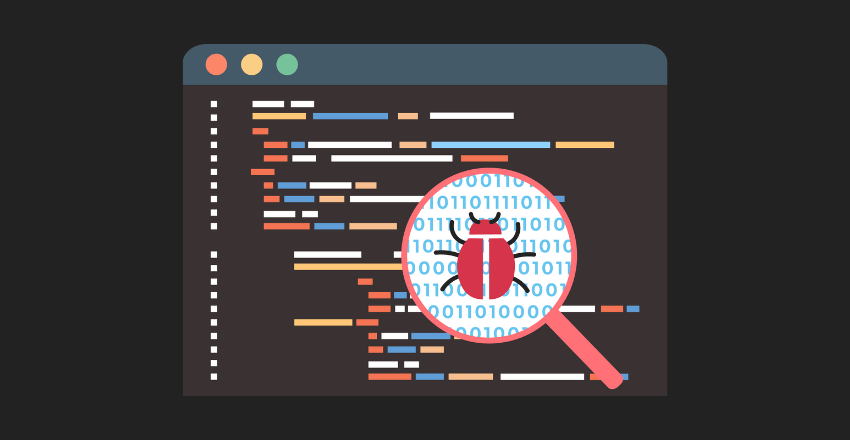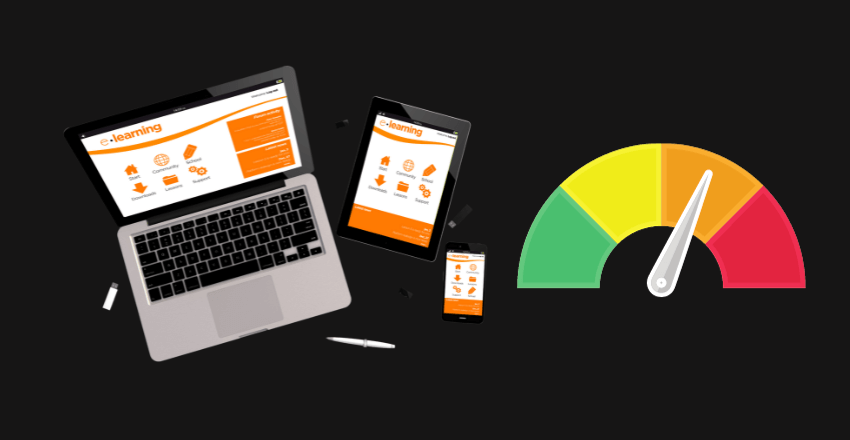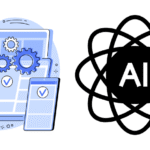 Cross-Platform Development Best Practices – Master cross-platform development with these best practices. Focus on code reusability, consistent UI/UX design, and rigorous testing for high-quality, efficient app delivery.
Cross-Platform Development Best Practices – Master cross-platform development with these best practices. Focus on code reusability, consistent UI/UX design, and rigorous testing for high-quality, efficient app delivery.
If you’re in the process of developing mobile apps, considering cross platform development is a smart move. Cross platform development involves building apps that can run seamlessly across multiple platforms such as iOS, Android, and Windows, using a single codebase. This results in faster development, lower costs, and wider reach.
However, cross platform development is not without its challenges, which is why it’s essential to follow best practices and work with experts in the field. One such expert is Hire Cross Platform Developer, a company based in Brazil that offers dedicated English-speaking developers to US and UK firms.
Key Takeaways:
- Cross platform development involves building apps that can run seamlessly across multiple platforms using a single codebase.
- Following best practices and working with experts in the field is essential for successful cross platform development.
- Hire Cross Platform Developer is a company based in Brazil that offers dedicated English-speaking developers to US and UK firms.
Why Opt for Cross Platform Development?
Cross platform development has become an increasingly popular choice for mobile app development, especially for US and UK firms looking to outsource development to lower-cost dedicated developers.
Compared to native development, cross platform development offers several advantages. For one, it allows developers to build apps that can run on multiple operating systems, including iOS and Android, without having to write separate code for each platform. This saves time and reduces development costs, making it an attractive option for firms with limited resources.
With cross platform development, US and UK firms can access a large pool of skilled developers in countries such as Brazil, where Hire Cross Platform Developer company offers dedicated English-speaking developers who are proficient in cross platform development best practices.
Overall, cross platform development offers a cost-efficient and efficient alternative to native development, making it an ideal choice for firms looking to quickly and effectively develop mobile apps for multiple platforms.
Importance of Expertise in Cross Platform Development
When it comes to cross platform development, having expertise in the field makes all the difference. Efficient coding practices and superior results are directly tied to the proficiency of the developers involved in the project. Hiring experts in cross platform development is the key to achieving success and efficiency in your mobile app development projects.
Cross platform development expertise ensures that your development team is equipped with the knowledge and skills necessary to implement efficient coding practices. Moreover, having a team of skilled professionals proficient in cross platform development best practices can lead to superior results that meet or exceed expectations. When it comes to mobile app development, these factors are crucial in determining the success of your project.
Essential Best Practices for Cross Platform Development

When it comes to cross platform development, adhering to best practices is crucial for achieving compatibility and efficiency across multiple platforms. Here are some essential tips and techniques to follow:
1. Choose the Right Framework
Choosing the right framework is crucial for successful cross platform development. Look for a framework that allows for code reuse and supports multiple platforms. Some popular options include React Native, Xamarin, and PhoneGap.
2. Follow Platform-Specific Guidelines
Each platform has its own design guidelines that developers should follow to create a consistent user interface and experience. When designing the app, pay attention to platform-specific features and behaviors that users are familiar with.
3. Optimize Code
Optimizing code is crucial for achieving superior app performance. Write clean, modular, and scalable code that is optimized for each platform. Minimize resource usage and leverage platform-specific features to improve performance.
4. Test on Multiple Platforms
Thorough testing is essential for ensuring a smooth user experience on all target devices. Test the app on multiple platforms and devices to ensure compatibility and identify any issues that need to be addressed.
5. Implement Continuous Integration and Delivery
Implementing continuous integration and delivery can help to streamline the development process and ensure that updates are deployed quickly and efficiently. Use automation tools to automate testing, build, and deployment processes.
Efficient Coding Practices for Cross Platform Development
Cross platform development requires efficient coding practices to ensure compatibility and efficiency across multiple platforms. Here are some tips and techniques that developers should follow:
- Use framework and libraries that allow code reuse and improve development efficiency. Write clean, modular, and scalable code that works seamlessly on different operating systems.
- Reduce app loading times by optimizing code and minimizing resource usage. If possible, leverage platform-specific features to improve performance.
- Create a single codebase that can be deployed across multiple platforms. This will reduce development time and maintain consistency across different devices.
- Use version control systems such as Git to manage source code and track changes. This will help ensure that code is consistent and easy to maintain.
- Test code thoroughly on different devices and platforms. Employ automated testing tools to streamline the testing process and increase efficiency.
By following these efficient coding practices for cross platform development, developers can create high-quality, multi-platform applications with ease.
Testing and Debugging in Cross Platform Development

Testing and debugging are critical components of cross platform development. Developing an application that works seamlessly on multiple platforms requires a rigorous testing process to ensure that the app performs consistently across all devices. In this section, we discuss some of the challenges that developers face when testing and debugging cross platform applications, and provide some tips and best practices to overcome them.
Challenges in Cross Platform Testing and Debugging
Cross platform development presents several unique challenges when it comes to testing and debugging. One major challenge is ensuring that the app functions correctly on all target devices, including both iOS and Android devices and different screen sizes. In addition, cross platform development involves working with multiple programming languages, which can make the debugging process more complex.
Another challenge in cross platform testing is the multitude of environments that need to be tested. Testing across a variety of operating systems, hardware configurations, and network conditions can be time-consuming and expensive.
Tips and Best Practices for Effective Testing and Debugging
Effective testing and debugging in cross platform development requires a thorough and systematic approach. Here are some tips and best practices to help you streamline the testing and debugging process:
- Start testing early: Begin testing as early as possible in the development process to catch issues before they become more complicated and harder to fix.
- Use automated testing tools: Automated testing tools can save time and effort and ensure consistent testing across all platforms.
- Test on real devices: While emulators and simulators are useful tools for testing, testing on real devices is essential to fully test app functionality and performance.
- Collaborate with developers: Collaboration is key to effective testing and debugging. Developers and testers should work together to identify and fix issues as quickly as possible.
- Use remote debugging: Remote debugging tools can simplify the debugging process by allowing developers to test their code on different devices remotely.
- Test for performance: Testing for performance issues such as lag and slow load times is crucial to ensure that users have a seamless experience on all target devices.
- Thoroughly test all features: Test all features of the app on all target platforms to ensure that the app functions correctly and consistently across all devices.
By following these tips and best practices, developers can ensure that their cross platform applications are thoroughly tested and debugged, resulting in a seamless and successful user experience.
UI/UX Considerations for Cross Platform Development

When developing cross platform applications, it is crucial to consider the user interface and experience (UI/UX) factors across multiple platforms. Creating a consistent and user-friendly interface is essential to keep the users engaged and satisfied with the application. In this section, we will discuss some of the key factors that developers must consider to ensure a successful cross platform development project.
Design Consistency
Design consistency is one of the most important considerations for cross platform development. Developers must ensure that the user interface of the application is consistent across all platforms to provide a seamless experience for users. Consistency in design includes the use of consistent color schemes, font styles, iconography, and other design elements. Additionally, developers should take into account platform-specific design guidelines, such as the Material Design guidelines for Android and the Human Interface Guidelines for iOS.
Intuitive Navigation
Intuitive navigation is another critical factor to consider in cross platform development. Users must be able to navigate through the application effortlessly, regardless of the platform they are using. Developers should keep the navigation simple, intuitive, and consistent across all platforms. Furthermore, mobile devices have smaller screens, so it is important to prioritize the most critical navigation options, while still ensuring easy access to other features as well.
Optimized Content
The content displayed on the application should be optimized for each platform. The layout and formatting of the content should be adjusted according to the screen size and resolution of the device. For example, content that is displayed side-by-side on a desktop screen may be stacked vertically on a mobile device. Developers should ensure that the content is easily accessible, readable, and clear on all platforms, while avoiding cluttered and overwhelming content.
Device Compatibility
Compatibility with different devices is another crucial factor to consider in cross platform development. Developers should test the application on a variety of devices to ensure that it is functioning correctly on all platforms. Moreover, developers should ensure that the application is responsive to different screen sizes and resolutions, and that the UI adapts to any device or screen orientation.
Considering UI/UX factors is essential to ensure a successful cross platform development project. By following the tips discussed in this section, developers can create a consistent and user-friendly interface, ensure intuitive navigation, optimize content, and achieve compatibility across multiple platforms.
Performance Optimization in Cross Platform Development

Efficient coding practices are essential in cross platform development to ensure optimized performance across multiple platforms. Consider the following tips to improve your app’s performance:
- Optimize code for speed and efficiency: Use consistent and standardized code to minimize resource usage and improve runtime speed. Avoid using expensive operations that may slow down the app.
- Use platform-specific features: Different platforms offer different features and capabilities. Leverage platform-specific features to enhance app performance and user experience.
- Minimize resource usage: Ensure that your app uses minimal resources like memory, CPU, and network bandwidth. Optimize resource usage to prevent app crashes and reduce battery consumption.
- Test and optimize for different devices: Test your app across different devices and platforms to ensure consistent performance. Optimize your app for different screen sizes and device types to provide a smooth user experience.
- Use caching: Caching data can improve app performance by reducing network requests and improving response times. Use caching strategies to avoid repeated data requests.
By following these efficient coding practices and performance optimization tips, you can ensure that your cross platform app performs smoothly and efficiently on all target platforms.
Conclusion
To succeed in the fast-paced world of mobile app development, it is essential to follow cross platform development best practices and adopt efficient coding practices. With the increasing demand for mobile apps, companies can no longer overlook the benefits of cross platform development. By hiring experts in this field, businesses can ensure superior results and achieve cost-effective, efficient mobile app development.
By following these tips, developers can create cross platform applications that work seamlessly across different operating systems and provide an intuitive, user-friendly experience.
External Resources
https://www.browserstack.com/guide/coding-standards-best-practices
https://en.wikipedia.org/wiki/Coding_best_practices
https://mitcommlab.mit.edu/broad/commkit/best-practices-for-coding-organization-and-documentation/
FAQ

Q: What are cross platform development best practices?
A: Cross platform development best practices refer to the recommended techniques and strategies that developers should follow when creating applications that can run on multiple platforms, such as iOS and Android. These practices ensure compatibility, efficiency, and a consistent user experience across different operating systems.
Q: Why should I hire a cross platform developer?
A: Hiring a cross platform developer offers several benefits. It allows you to leverage their expertise in efficient coding practices and ensures superior results. Additionally, hiring dedicated developers from a reputable company like Hire Cross Platform Developer provides access to English-speaking professionals who can cater to the needs of US and UK firms.
Q: What are the advantages of cross platform development?
A: Cross platform development offers several advantages over native development. It allows for the development of applications that can run on multiple operating systems, reducing time and cost. Outsourcing cross platform development to lower-cost dedicated developers from Brazil can further enhance these advantages for US and UK firms.
Q: What is the importance of expertise in cross platform development?
A: Expertise in cross platform development is essential to ensure efficient coding practices and achieve superior results. Working with skilled professionals who are proficient in cross platform development best practices allows for optimized code that works seamlessly on different operating systems, leading to a successful application.
Q: What are some essential best practices for cross platform development?
A: Essential best practices for cross platform development include following multi-platform development tips to ensure compatibility and efficiency. These practices involve writing optimized code that works seamlessly on different operating systems and considering factors such as UI/UX, testing and debugging, and performance optimization.
Q: What are efficient coding practices for cross platform development?
A: Efficient coding practices for cross platform development involve the use of frameworks and libraries that facilitate code reuse and improve development efficiency. Additionally, writing clean, modular, and scalable code is essential for creating cross platform applications that are easy to maintain and update.
Q: How can I ensure effective testing and debugging in cross platform development?
A: Testing and debugging in cross platform development can be challenging due to the variety of platforms. To ensure effectiveness, developers should adopt thorough testing practices and utilize tools and techniques that allow for testing across different platforms. This helps identify and fix any issues that may arise, ensuring a smooth user experience.
Q: What UI/UX considerations are important in cross platform development?
A: When developing cross platform applications, it is crucial to consider UI/UX factors. This involves creating a consistent user interface and experience across different platforms while adhering to platform-specific design guidelines. Designing intuitive and user-friendly interfaces is essential for ensuring a positive user experience.
Q: How can I optimize performance in cross platform development?
A: Performance optimization in cross platform development can be achieved through efficient coding practices. This includes optimizing code, minimizing resource usage, and leveraging platform-specific features. Considering performance factors during the development process ensures that the application performs well across different platforms.
Charlotte Williams is a talented technical author specializing in cross-platform app development. With a diverse professional background, she has gained valuable experience at renowned companies such as Alibaba and Accenture. Charlotte’s journey in the tech industry began as a mobile UX designer back in 2007, allowing her to develop a keen understanding of user-centric app design.
Proficient in utilizing frameworks like React Native and Flutter, Charlotte excels in building cross-platform mobile apps and imparting her knowledge to aspiring developers. She pursued a degree in Computer Science at Cornell University, equipping her with a strong foundation in the field. Residing in San Francisco with her three beloved dogs, she finds solace in hiking the hills and connecting with nature. Charlotte’s passion for app development, combined with her dedication to sharing expertise, makes her an invaluable resource in the world of cross-platform app development.







